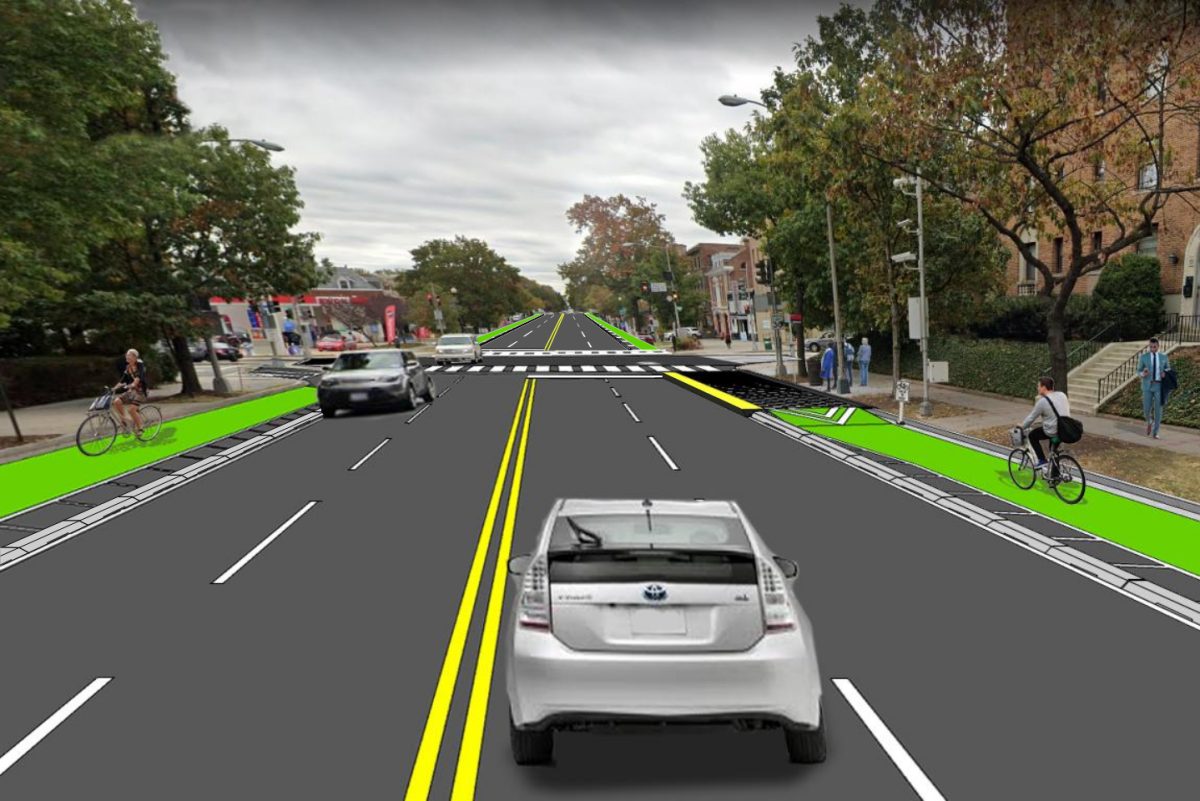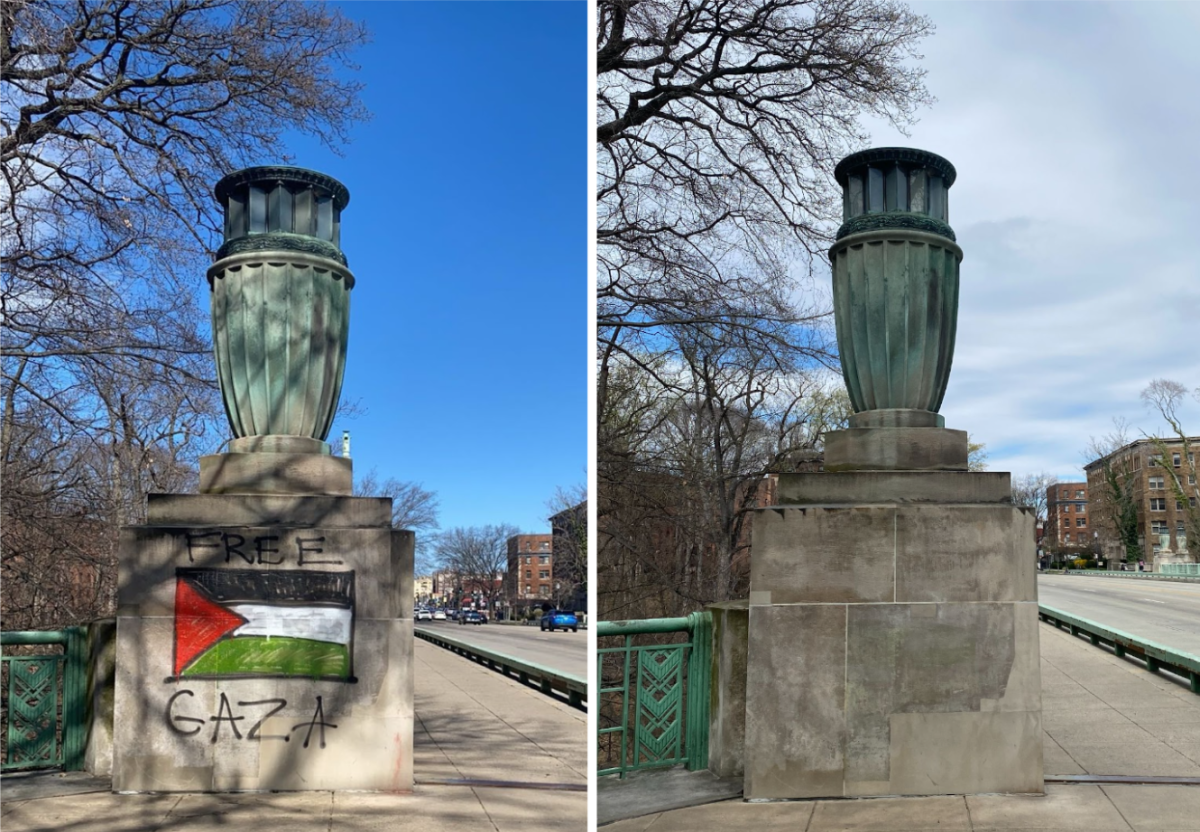In hopes of boosting safety on Connecticut Avenue, Mayor Muriel Bowser’s office announced plans on Dec. 15, 2021 to reduce the amount of car travel lanes in each direction to two, remove one lane of parking and add bike lanes to each side. This quickly became known as the “Connecticut Avenue Bike Lane Project” among locals, since the bike lanes will remove all on-street parking on many parts of the avenue.
The project is planned to affect the road from Woodley Park up to Chevy Chase. Due to fierce opposition from businesses and residents alike, the construction date has recently been pushed back to winter 2028.
Ever since the project was announced, residents have been split on the issue, while the response from businesses along the stretch of Connecticut Avenue that will be affected has been overwhelmingly negative.
Supporters of the project, which will also reduce the current speed limit from 30 to 25 mph, say it will bring much needed safety to bikers and drivers alike on an avenue that recently suffered from a four-car crash where seven people were injured and one person died. Critics argue it will increase traffic congestion and will hurt the small businesses in the area by taking away on-street parking.
Bob Ward, longtime advocate for smart development in Ward 3 and resident of Macomb Street, believes that the positives of replacing parking with bike lanes outweigh the negatives.
“The amount of cars that are providing the marginal benefit to the businesses is pretty small; most of these businesses here are served by people walking, and there’s just not enough parking today to make that extra difference in their bottom lines,” Ward said. “Whereas if you have bicycle lanes, and the [District Department of Transportation (DDOT)] is predicting that over a five year period, it’s going to get to 3,200 bicycle trips a day on Connecticut Avenue… Those people don’t need car parking spaces. They just need a place to pull over and lock their bike, and go into the store.”
However, Bob Kotchenreuther, owner of Cleveland Park Valet on Connecticut Avenue and a vocal part of the opposition to the project, disagrees.
“Connecticut Avenue is a main thoroughfare for getting out of the District of Columbia,” he said. “At rush hour, if you were to take away that lane, you would only have two lanes leaving the District, worsening the already bad traffic situation.”
The concern of increased traffic congestion isn’t the only thing holding the plan back. Save Connecticut Avenue, a local organization set up by business owners and residents alike, believes that reducing or eliminating on-street parking will negatively impact business by decreasing the amount of customers able to arrive in their car.
“Small businesses that are already suffering [from COVID] will be decimated as they are cut off from their customers,” the website says.
Nevertheless, this view isn’t shared by everyone in Northwest D.C. “It surprises me as someone who walks down that stretch of businesses,” Cortland Street resident and project supporter Helen Eisner said. “I walk past there all of the time and I see the number of people who are walking over there, and I just think this is a dense enough area, and there’s a lot of pedestrian traffic, and that really does support the businesses.”
Ward hopes that the planned construction date of winter 2028 gets moved forward, and that success on Connecticut Avenue will prompt more bike lane proposals on other routes heading out of D.C.
“If it works here, it’s going to work on Wisconsin Avenue, Massachusetts Avenue,” he said. “Hopefully this project gets off the ground and actually gets designed… and can show that the sky hasn’t fallen.”
Kotchenreuther points out that the DDOT hasn’t considered a gradual rollout.
“Start with one lane and see if it works. But don’t start automatically with two lanes,” he said. “If they build one lane and all of a sudden you see a thousand bikers, I’ll say, ‘You know what, I was wrong, go ahead and build another [lane].’”
Kotchenreuther believes the solution to this increasingly controversial plan is increased communication between supporters of the project and those who oppose it.
“The problem is, you’re getting voices heard from different sides,” he said. “Bring everyone together, and have a conversation. Talk about it. That’s the smartest thing to do; don’t start name calling.”
By Oliver Dashwood


































































